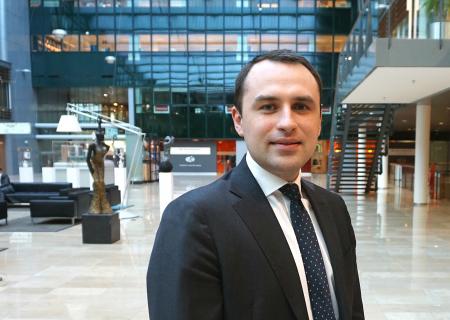Diligence finds its rewards
INREV's Due Diligence Committee is expanding into online data rooms & operational questions
In Munich in June there is a chance for members to get to grips with a key topic – due diligence.
The Effective Due Diligence training course will look at key elements of an area which has been of central importance for INREV for more than 15 years now, and which is constantly evolving.
Members interested in the topic will hear about the key elements of due diligence from the perspective of both the investor and the fund manager, including speakers from large institutional investors, general partners and advisors. The participants also are asked for active involvement in a case study touching on various important due diligence elements.
The event is appropriately timed, given the work being undertaken by INREV’s Due Diligence Committee to expand the elements of due diligence it addresses, in order to fully address the nature of investment decisions in the post financial-crisis world.
A key element of INREV and the committee’s work throughout the years, and a key tool for investors, has been the Due Diligence Questionnaire. Available on the INREV website, it has helped to facilitate the due diligence process for both investors and fund managers by providing a standardised document.
INREV produced its first Due Diligence Questionnaire 10 years ago, focused on non-listed real estate vehicles; after this it produced a questionnaire for Fund-of-Funds and Multi- Managers, and most recently it produced a questionnaire for real estate debt vehicles. There is also a German translation available for the debt and non-listed vehicles questionnaire.
‘For many years, it has been a key document during fundraising for investors to do due diligence, and fund managers have bought into it as well,’ says Anne Gales, partner at Threadmark and Chairman of the Due Diligence Committee.
Especially since the financial crisis, large investors have become more aware of elements such as the procedures that an organisation follows
‘Often the questionnaire is the key document the investor will include during desk research, before they actually embark on their on-site due diligence; meeting a manager, viewing the assets and interviewing the team in person.’
Gales says: ‘There are questions about the organisation itself, the specific vehicle including track record and terms, legal and tax questions etc, a very nuts and bolts approach in terms of doing due diligence.
‘We sometimes receive feedback from managers that the questionnaire is too detailed and takes a long time to fill in. This is indeed the case, however, INREV members do like this kind of detail and the benefits of using a standardised and recognised questionnaire far outweigh the negatives. Some investors come up with their own questionnaire, but not many.’
The Due Diligence Committee is expanding its activities to encompass two key areas – online data room agenda and the relatively new concept of ‘operational due diligence’.
In terms of the former, as the industry becomes increasingly digital, online data rooms are quickly replacing a duediligence process based entirely around paper documents.
The committee is advising fund managers how best to organise these data rooms, to make them as useful as possible.
‘It is not our mission to make all data-rooms exactly the same, as fund managers have different needs. Our aim is to provide guidance on standardising the online data rooms around fundraising activities so that at a minimum key documents alongside the Questionnaire are included’ says Gales. ‘We are providing INREV members with guidance on what they should expect to see.
Operational due diligence which will be covered in the course is something that has arisen since the financial crisis, which Gales defines as ‘those elements that are not just about the fund manager, investment strategy or the investments, but the set up, operations and policies within a fund management business.
‘Especially since the financial crisis, large investors have become more aware of elements such as the procedures that an organisation follows, the extent of who has approval of decisions and how those processes work, as well as how funds are set up, and who is responsible for day to day operations within an organisation. This element was underestimated in due diligence before, but now investors want to know what the risks are in this area as well. This operational due diligence generally takes place at the end of the process.
‘We are not creating an operational questionnaire at this stage, but coming up with a framework of key topics. This will be underpinned with a short list with possible questions and request for possible documents.
In general, Gales says: ‘We are always keen to hear from members on ideas they might have for areas we should be focusing on, or receiving feedback on the work we have already done.’
The Effective Due Diligence Course will take place in Munich on 7 June. For further details visit www.inrev.org/training.
Anne Gales is Partner at Threadmark and Chair of the INREV Due Diligence Committee.






